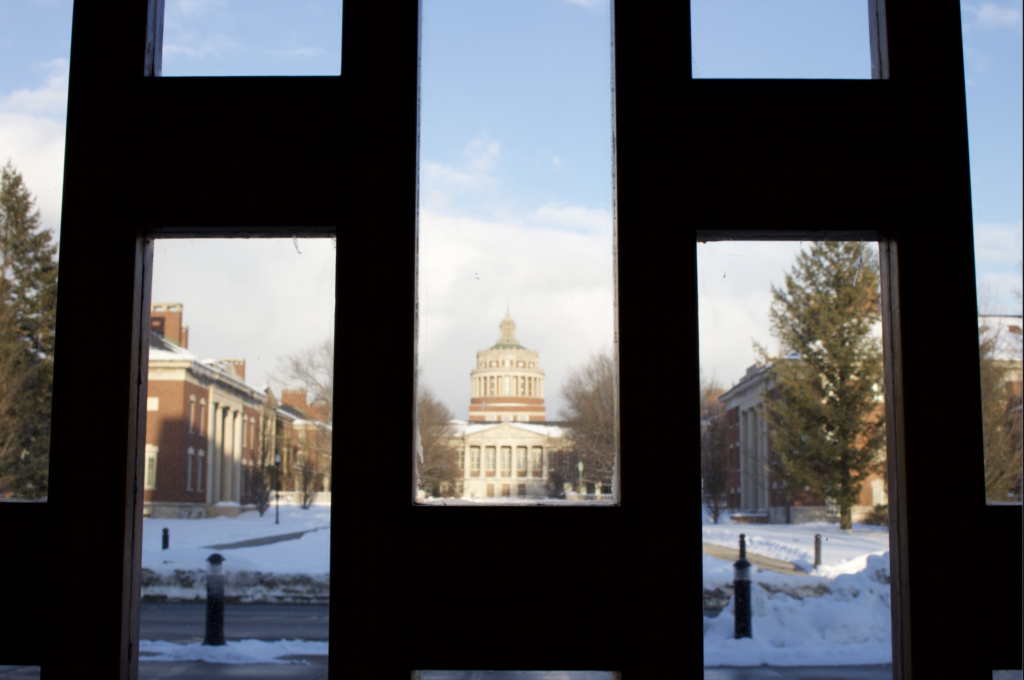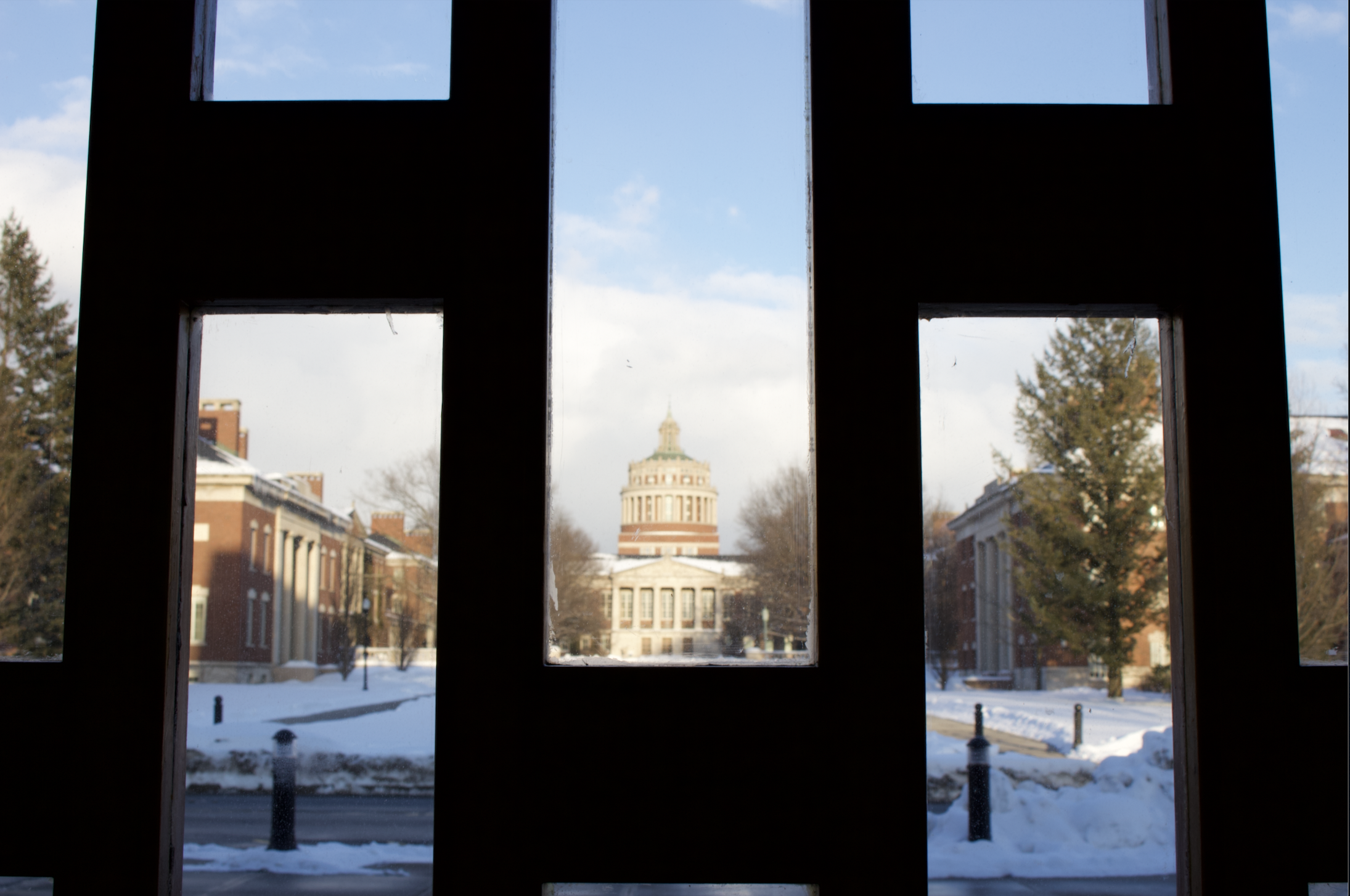You can make almost anything into a story. Pursuing a filmmaking career that constantly strives to transform any ordinary element of life into a whirl-wind, cinematic visual of emotion, entertainment, and reflection, I’ve realized that sometimes seeing meaning in everything can drain the actual activity. I sometimes fail in recognizing a situation for what it is by psychoanalyzing it in order to use it for my creative perspective.
There are instances in the academic world, especially, where we as students should be allowed to let go of our studies, of our skills, and our studious perspectives that have been ingrained into us for so long by the academic merit of achieving critical thinking in all realms of disciplines. When you walk into a room and want to experience the atmosphere of enjoying a conversation with friends, it’s nice to experience something without academics getting into our conversation, or rather, becoming our identity as students.
It’s difficult not to talk about college life — school is inseparable from our lives. Whether you live in a dorm or not, the people we are surrounded by are indeed also students. This is the romantic idea colleges sell to prospective students — just think of those pamphlets with images of students sprawled on every corner of the campus — but once you’ve lived the experience and done your homework, at the end of the day, campus life can be a restrictive bubble.
There are many reasons that this is problematic, especially in our specific community of the greater Rochester area. Students may face the daily struggles of getting an essay extension, finding room in their schedule to squeeze in the fifth meeting of the day, or meeting up with that friend for lunch when your class schedules barely align, but there are many more serious issues in the Rochester community that could use our attention.
As the number one employer in Rochester, UR displays a huge lack of communication, engagement, and incentive to build a better relationship with many neighborhoods like the 19th Ward. There are great resources available to students who want to connect with the community off campus, but there needs to be a greater effort to have conversations that are not just about bettering our campus, but also about meeting the needs of our community, and supporting Rochester residents and employees.
Constrained by a campus bubble and lack of transportation to neighborhoods where students could get more exposure to Rochester, the city, and its residents, students are following an academic mindset that deprives them of true “Meliora values.” Constant discussion between students and faculty about the topics we are studying in the classroom are necessary and valid, but there is a limit.
Elite institutions and colleges need to draw boundaries in order for students, faculty, and staff to have a place of their own — a space that is a step away from the pressures of exams, civic issues, research, and all the stepping-stones of success (for professors and students) that universities and colleges force upon their members.
Moreover, with nearly 43% of UR students living off campus according to US News, I think there is a connection between that percentage and the consequences of toxic campus life culture. Even our slogan “ever better” calls to mind a certain stereotype of the scholarly student: that success is a constant competition of Sysiphus’ fate, and that failure is an exclusion of that “forever studying/researching/discussing/making/reading/watching/writing/testing/presenting” or in other words, the #grind.
You can find the “toxic Meliora” college mindset in every aspect of “academic merit,” which in itself can be a problematic phrase. Merit subscribes to an ideology that our work here has to be worthwhile, and on top of that, rigorous in the institution’s view of what “rigorous” means. This view is not always elastic. Academic merit cites a specific curriculum as unchangeable and reduces room for creativity, either on the part of the professor or the student.
Is there room for students to propose a creative project instead of an exam to their math professor? Can students reject the format of an argumentative essay to create a reflective essay or poem that highlights their knowledge instead?
Sometimes, but it’s not always the institutional standard. Are more creative avenues like independent projects, humanities research or field work, video formats and blogs, and other alternatives to exams or essays really valued as “academic merit” across UR’s disciplines?
Are extensions always allowed? Are accommodations for students who want to attend an event or lecture during class for their own outside interests always made? Are students whose lives expand outside not only the classroom, but outside campus and beyond the “liberal arts” curriculum valued? Is it within the definition of “ever better?”
Ever better for whom, we may ask.
Certainly, as an institution that has such an impact on our greater community, we should be looking to our own foundation and the connections we have made with our ingrained critical thinking skills and question: What story are we telling about ourselves, and how do we compensate for the histories/history/historie/stories/voices/language/breaking/loud/cries/of/warm/futures that reject it?


